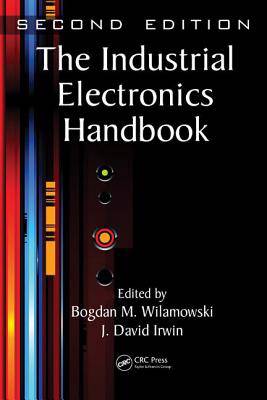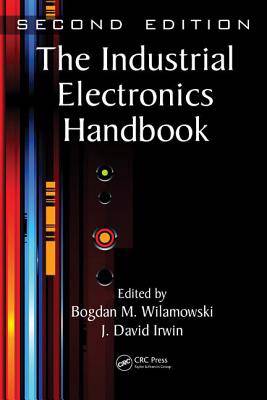
- Retrait gratuit dans votre magasin Club
- 7.000.000 titres dans notre catalogue
- Payer en toute sécurité
- Toujours un magasin près de chez vous
- Retrait gratuit dans votre magasin Club
- 7.000.000 titres dans notre catalogue
- Payer en toute sécurité
- Toujours un magasin près de chez vous
The Industrial Electronics Handbook - Five Volume Set
Description
Industrial electronics systems govern so many different functions that vary in complexity--from the operation of relatively simple applications, such as electric motors, to that of more complicated machines and systems, including robots and entire fabrication processes.
The Industrial Electronics Handbook, Second Edition combines traditional and newer, more specialized knowledge that will help industrial electronics engineers develop practical solutions for the design and implementation of modern industrial systems. Embracing the broad technological scope of the field, this collection explores fundamental areas, including analog and digital circuits, electronics, electromagnetic machines, and signal processing. It also facilitates the use of intelligent systems--such as neural networks, fuzzy systems, and evolutionary methods--in terms of a hierarchical structure that makes factory control and supervision more efficient by addressing the needs of all production components.
Assembling the world's leading researchers to cover key aspects of this branch of science, the handbook includes the following volumes, which are available individually or as a complete set:
- Fundamentals of Industrial Electronics
- Power Electronics and Motor Drives
- Control and Mechatronics
- Industrial Communication Systems
- Intelligent Systems
To help readers deal with myriad physical phenomena--and the sensors used to measure them--the handbook re-evaluates the importance of electronic circuits. It goes beyond their value as an end product and focuses on their importance as building blocks in larger systems. Taking into account the relative complexity of most fabrication processes, contributors simplify the development and application of communication systems that can be tailored for specific industrial environments to link the various elements of each.
Enhancing its value, this fully updated collection presents research and global trends as published in the IEEE Transactions on Industrial Electronics Journal, one of the largest and most respected publications in the field.
Spécifications
Parties prenantes
- Editeur:
Contenu
- Nombre de pages :
- 4052
- Langue:
- Anglais
- Collection :
Caractéristiques
- EAN:
- 9781439802892
- Date de parution :
- 01-03-11
- Format:
- Livre
- Dimensions :
- 203 mm x 282 mm
- Poids :
- 8346 g






